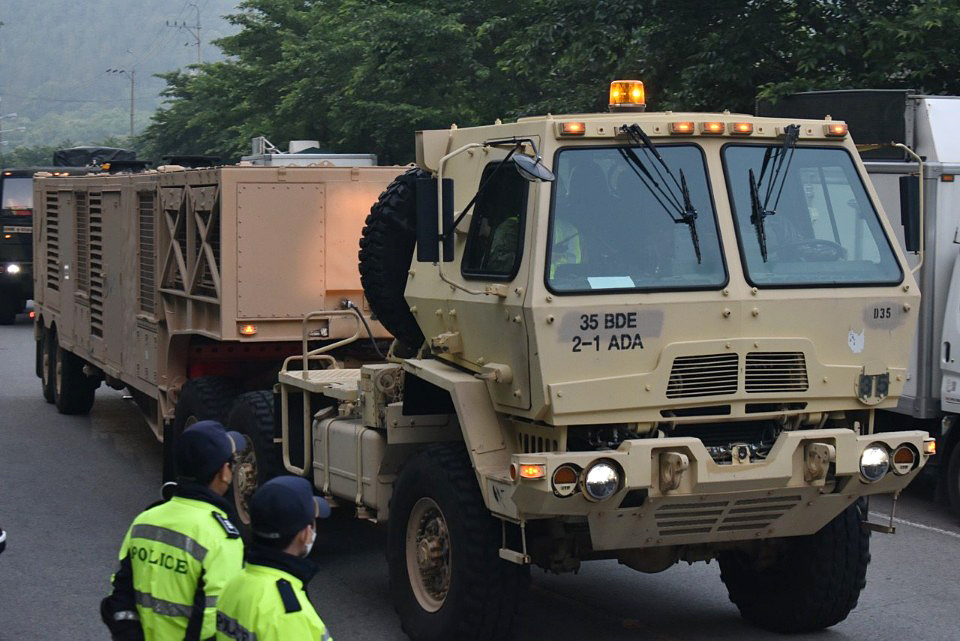NK accuses Seoul of planning additional THAAD deployment
By Ahn Sung-miPublished : Nov. 2, 2020 - 15:34

North Korea on Monday argued that South Korea is scheming to deploy an additional US missile defense system in the country, and warned that doing so would lead to “self-destruction.”
Pyongyang propaganda outlet Uriminzokkiri claimed that at recent defense ministers’ talks, Seoul and Washington had agreed to establish a long-term plan for a Terminal High Altitude Area Defense battery in the town of Seongju, North Gyeongsang Province, and that the plan was aimed at deploying additional systems on the base.
It also denounced Seoul’s plan to participate in annual US-led multinational military exercises, known as Global Thunder and Global Sentinel, mentioning what it called “the belligerent nature of wild lunatics crazy about fighting its own people.”
The pursuit of military strength, through means such as joint exercises and the THAAD system, is “reckless behavior” that will increase the risk of war and escalate tensions on the Korean Peninsula and the region, it said.
The North’s public condemnation appears to be a response to remarks made earlier this month by South Korean Ambassador to Japan Nam Gwan-pyo.
Nam denied rumors that South Korea was pursuing a strategy known as “the three nots” -- no additional THAAD units, no agreement to participate in a US-led regional missile defense system and no regional military alliance with the US or Japan. This was widely perceived as Seoul’s strategy to restore ties with China, which became frayed over the THAAD issue. Viewing the US-led system as a threat to its national security, China hit back at South Korea with economic retaliation.
Nam, who was then a director of the presidential National Security Office leading the talks with Beijing in 2017 to mend ties, told a parliamentary audit on Oct. 21 that the “three nots” were not a commitment, nor part of an agreement, made by Seoul.
In response to Nam’s statement, China urged South Korea to properly handle the THAAD issue.
“China and South Korea reached an agreement in October 2017 on the phased handling of the THAAD issue and pushing bilateral relations back on a normal development track,” said Zhao Lijian, a Chinese Foreign Ministry spokesperson.
He reiterated that China firmly opposes the US deployment of THAAD in South Korea, “which undermines China’s strategic security interests and regional strategic balance.”
“We hope the ROK will properly handle this issue following the consensus reached by China and itself, and prevent the bilateral ties from being disrupted or impacted,” he said, abbreviating South Korea’s official name, the Republic of Korea. “We would like to work with the ROK to move bilateral relations forward.”
By Ahn Sung-mi (sahn@heraldcorp.com)









![[Hello India] Hyundai Motor vows to boost 'clean mobility' in India](http://res.heraldm.com/phpwas/restmb_idxmake.php?idx=644&simg=/content/image/2024/04/25/20240425050672_0.jpg&u=)










